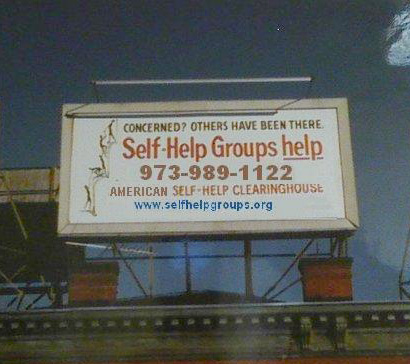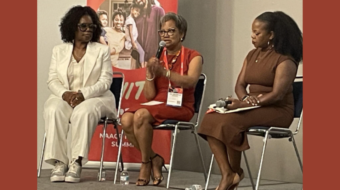
People attending support groups find help from others who share similar experiences or problems. Individuals have the chance to collectively share practical information, exchange coping strategies, as well as belonging to a community that understands them and their unique circumstances.
The late former U.S. Surgeon General, C. Everett Koop, MD brilliantly summed it up:
“My years as a medical practitioner, as well as my own first-hand experience, have taught me how important self-help groups are in assisting their members in dealing with problems, stress, hardship and pain…Today, the benefits of mutual aid are experienced by millions of people who turn to others with a similar problem to attempt to deal with their isolation, powerlessness, alienation, and the awful feeling that nobody understands.”
In the archives of General Psychiatry it was reported that a support group for persons in early stages of skin cancer can increase their chance of survival threefold over a five-year period. Two thirds of the patients who attended a group showed a 25 percent increase in natural cancer fighting cells. A Duke University study found that heart patients who lacked a spouse or confidant were three times more likely to die within five years of diagnosis than those who were married or had a close friend. Support groups can provide confidants or close friends.
The American Journal of Psychiatry reported that low-income substance abusers that attended post-treatment self-help groups showed lower rates of substance abuse after treatment.
Several studies have shown that psychiatric patients who belong to a support group need to be hospitalized less frequently and for shorter periods of time than persons who do not belong to a group. Stanford University reported that participation in Alcoholics Anonymous groups reduced related health care costs since members needed 45 percent less alcohol-related health care services over three years than those who only sought outpatient treatment.
With the implementation of the Affordable Care Act of 2010 and the expansion of Medicaid in some states the healthcare industry is starting to reevaluate how money is spent. In other words, the goal is to provide high-quality care and spending health care dollars more efficiently. Support groups enter into the picture as a proven way to manage an illness, share experiences and reduce recidivism.
The American and New Jersey Self-Help Group Clearinghouses has been helping people find national self-help headquarters, local self-help group clearinghouses, national and international resources, online, telephone and one-of-a-kind support groups, as well as other national networks since 1980. All of the services of the Clearinghouse, from workshops and trainings to information and referral are completely free of charge. All of the support groups listed are free. Some support groups ask for a donation to cover refreshments or space rental but that information is given to callers upfront.
The Clearinghouse continues to do outreach to Accountable Care Organizations (ACOs). ACOs are groups of doctors, hospitals, and other health care providers, who come together to give coordinated high quality care to their patients.
The Clearinghouse has, over the years, built and continually updates a rather extensive database of support groups for just about any type of stressful situation that affects people’s well-being. Groups cover a wide range of life-situations such as addictions, bereavement, disabilities, behavioral and physical health, parenting, care giving, and much more. The Clearinghouse provides online free “how tos” on starting and running a local support group, a free downloadable library chocked full of suggestions on starting and maintaining local and online groups and more. There is also a list of sister Clearinghouses throughout the United States and all over the world (where such clearinghouses exist).
The Sourcebook, first published in 1986, was a collection of national self-help organizations, support groups, resources and lists of other state and international clearinghouses. Today the Sourcebook exists on the Internet. The Online Sourcebook is a keyword searchable database of over 1,100 national, international, online, and model self-help groups. The Online Sourcebook is made possible through a partnership with MentalHelp.Net, the world’s oldest, and one of the most comprehensive online mental health guide. Several national organizations use the Clearinghouse’s unique national database as part of their information services or educational products.
Individuals may call the Clearinghouse to find local support groups and national resources at 973-989-1122. Their hours of operation are Monday through Friday from 8:30 a.m. to 5 p.m. EST or one may visit the Clearinghouse’s website at www.selfhelpgroups.org or write: The American and New Jersey Self-Help Group Clearinghouses, 375 E. McFarlan St., Dover, NJ 07801.
“Mutual support groups, involving little or no cost to participants, have a powerful effect on mental and physical health… The psychological and physical health importance of this diffuse community is striking.” – K.P. Davison et al, “Who Talks?: The Social Psychology of Illness Support Groups” American Psychologist.










